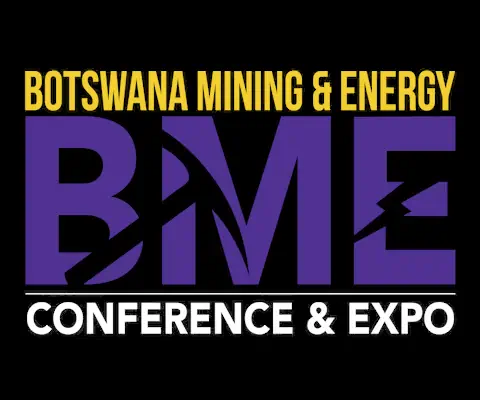Theoretical and experimental justification of primary energy and electron-energy phenomena of electric current generation
 I.E. Kolesnichenko, E.A. Kolesnichenko, E.I. Lyubomishchenko, E.I. Kolesnichenko
I.E. Kolesnichenko, E.A. Kolesnichenko, E.I. Lyubomishchenko, E.I. Kolesnichenko
Platov South-Russian State Polytechnic University (NPI), Shakhty, Russian Federation
Russian Mining Industry №2 / 2022 р. 97-102
Abstract: The article focuses on the issue of improving the efficiency of non-renewable and renewable sources of energy. It is shown that the problem still remains relevant. The key concept is that in order to develop new devices it is necessary to clarify the natural mechanism of electric current generation in the atomic-molecular structure of the current conductors. The aim of the work was to justify the physical phenomena of electric current generation and transport. The authors applied the Quantum theory to address theoretical issues, the results of which were confirmed by experimental studies. The principal differences shown between the various energy processes of electricity generation. Based on the analysis of the molecular structure of copper and the spherical electric field, a conclusion is made that there are no free electrons in the conductor. The hypothesis that the main phenomena of electric current formation occur at the level of electromagnetic energy emission by valence electrons of conductors is of scientific novelty. The electromagnetic energy induced in the magnetic field is the primary energy photon to be absorbed by the conductor electrons. It has been proven experimentally that the solar energy and thermal sources, which are electromagnetic energy with different emission frequencies, are identical. Application of the new knowledge can enhance the competence of the dedicated specialists and the efficiency of electrical energy generating devices.
Keywords: electric current, renewable sources, form of energy, phenomena, primary energy, copper conductor, valence electron, packet-photon, solar, current generating device
For citation: Kolesnichenko I.E., Kolesnichenko E.A., Lyubomishchenko E.I., Kolesnichenko E.I. Theoretical and experimental justification of primary energy and electron-energy phenomena of electric current generation. Russian Mining Industry. 2022;(2):97–102. https://doi.org/10.30686/1609-9192-2022-2-97-102
Article info
Received: 03.03.2022
Revised: 16.03.2022
Accepted: 17.03.2022
Information about the authors
Igor E. Kolesnichenko – Doctor of Technical Sciences, Professor, Head of the Motor Road Design and Construction Department, Deputy Director – Academic Advisor at the Shakhty Road Institute (branch), Platov South-Russian State Polytechnic University (NPI), Shakhty, Russian Federation; e-mail: This email address is being protected from spambots. You need JavaScript enabled to view it.
Evgeny A. Kolesnichenko – Doctor of Technical Sciences, Professor, Professor at the Motor Road Design and Construction Department of the Shakhty Road Institute (branch), Platov South-Russian State Polytechnic University (NPI), Shakhty, Russian Federation; e-mail: This email address is being protected from spambots. You need JavaScript enabled to view it.
Ekaterina I. Lyubomishchenko – Candidate of Technical Sciences, Associate Professor, Assistant Professor at the Motor Road Design and Construction Department of the Shakhty Road Institute (branch), Platov South-Russian State Polytechnic University (NPI), Shakhty, Russian Federation; ORCID: https://orcid.org/0000-0002-9495-7385; e-mail: This email address is being protected from spambots. You need JavaScript enabled to view it.
Evgeny I. Kolesnichenko – Student at the Motor Road Design and Construction Department of the Shakhty Road Institute (branch), Platov South-Russian State Polytechnic University (NPI), Shakhty, Russian Federation; e-mail: z_kolesnichenko@ mail.ru
References
1. Barkin O.G., Volkova I.O., Kozhukhovskii I.S. et al. Electric Power Industry of Russia: Challenges in Selecting a Development Model: Analytical Report to the 15th April International Scientific Conference on Economic and Social Development Challenges, Moscow, April 1–4, 2014. Moscow: HSE University; 2014. 45 p. (In Russ.)
2. Artobolevsky I.I. (ed.) Polytechnic dictionary. Moscow: Sovetskaya entsiklopediya; 1977. 608 p. (In Russ.)
3. Pyatibratov G.Ya. History of Development and Current Issues of Power and Electrical Engineering. Novocherkassk: Platov SouthRussian State Polytechnic University (NPI); 2013. 122 p. (In Russ.)
4. Kuhling H. Reference Book of Physics. Moscow: Mir; 1982. 520 p. (In Russ.)
5. Smirnov S.V., Gromov E.V. Concepts of Contemporary Natural Science. Elabuga: Изд-во Elabuga State Pedagogical University; 2011. 188 p. (In Russ.)
6. Landau L.D., Lifshits E.M. Theoretical Physics. Vol. 2. Field Theory. 8th ed. Moscow: FIZMATLIT; 2003. 536 p. (In Russ.)
7. Kolesnichenko I.E., Kolesnichenko E.A., Lyubomishchenko E.I., Kolesnichenko E.I., Evsyukova A.A. Regularities of Methane and Coal Dust Ignition Caused by Electric Sources in Mine Workings. Russian Mining Industry. 2021;(4):119–124. (In Russ.) https://doi.org/10.30686/1609-9192-2021-4-119-124
8. Tyurin Yu.I., Chernov I.P., Kryuchkov Yu.Yu. Physics. Quantum Physics. Tomsk: Tomsk Polytechnic University; 2009. 320 p. (In Russ.)
9. Glinka N.L.; Ermakov A.I. (ed.). General Chemistry. 30th ed. Moscow: Integral-Press; 2002. 728 p. (In Russ.)
10. Trubnikova V.N. Electrical Engineering and Electronics. Part 1. Electrical Circuits. Orenburg: Orenburg State University; 2014. 137 p. (In Russ.)
11. Svettsov V.I. Optical and Quantum Electronics. Ivanovo: Ivanovo State University of Chemistry and Technology; 2004. 122 p. (In Russ.)
12. Barsukov V.I., Dmitriev O.S. Physics. Electricity and Magnetism. Tambov: Tambov State Technical University; 2009. 252 p. (In Russ.)
13. Klyushnikov O.I., Stepanov A.V. Theoretical Foundations of Electrical Engineering. Part 1. Linear electric DC circuits. Ekaterinburg: Russian State Vocational Pedagogical University; 2006. 73 p. (In Russ.)
14. Konstantinov O.V., Bugrov V.E., Kolesnikova A.L. Lectures in classical electrodynamics. St. Petersburg: ITMO University; 2021. 140 p. (In Russ.)
15. Obukhov S.G. Systems of electric power generation using renewable energy resources. Tomsk: Tomsk Polytechnic University; 2008. 140 p. (In Russ.)





